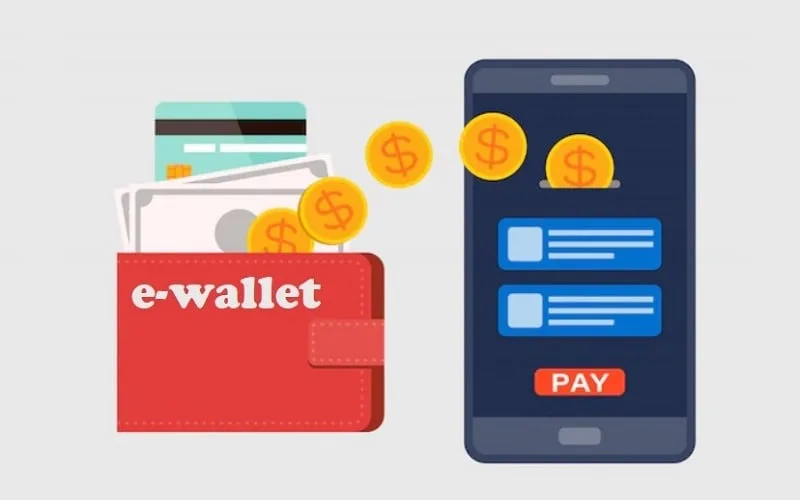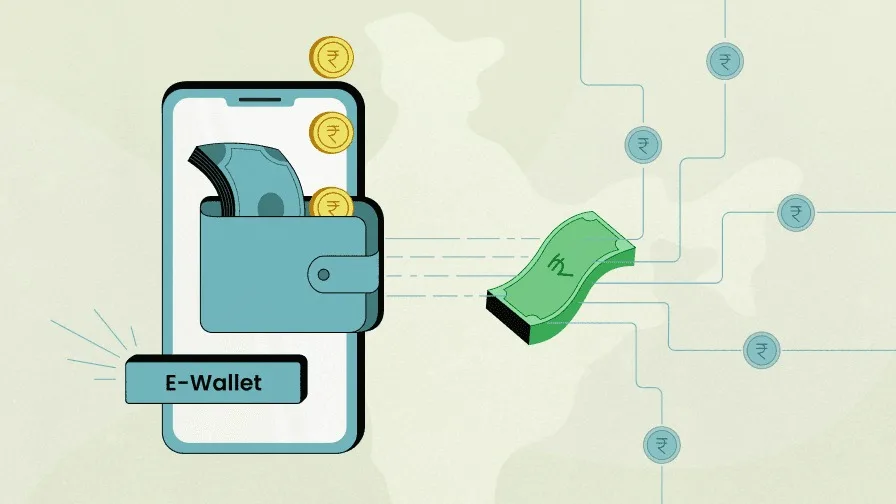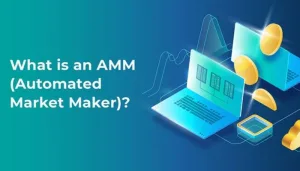E-Wallet Development: Key Features and Essentials
E-wallets combine secure storage and payment gateways, enabling online transactions via computers or smartphones. They function similarly to debit or credit cards but are entirely digital, eliminating the need for physical wallets.

How does this model work for merchants, startups, or FinTechs entering the market? Let’s explore the main types:
- Closed Wallets: Users can only transact with the wallet issuer, such as Amazon Pay. Funds from returns, refunds, or cancellations are stored within the wallet. This model benefits companies selling products or services, sometimes allowing them to earn interest on wallet balances.
- Semi-Closed Wallets: This option offers more flexibility, enabling transactions at specific stores and locations, like PayPal. These platforms centrally manage e-money for online and offline purchases, often requiring an e-money license to emit virtual currency into users’ wallets.
- Open Wallets: Typically developed by banks or in partnership with them, this model, like Visa or Mastercard, is widely accepted by retailers. It includes features of semi-closed wallets, supports online purchases, contactless in-store payments, and allows fund withdrawals at select ATMs or locations.

Key Components of E-wallet Development
Multi-Currencies
Modern e-wallets need to support multiple currencies to cater to a global user base. Multi-currency functionality allows users to hold and manage different types of digital and fiat currencies within a single wallet.
- Flexibility: Supporting various currencies enhances the wallet’s usability for international transactions. Users can store and transact in their preferred currency without the need for conversion.
- Conversion and Exchange: Integrating real-time exchange rates and conversion tools within the wallet can facilitate seamless currency swaps and transactions across different currencies.
- Regulatory Compliance: Ensuring compliance with international financial regulations and standards is crucial when dealing with multiple currencies. The e-wallet must adhere to legal requirements in different regions.
Multi-Platforms
To maximize accessibility and user convenience, e-wallets should be developed for multiple platforms. This includes:
- Mobile Applications: E-wallets are predominantly used on mobile devices. Developing native apps for both iOS and Android ensures a smooth and optimized user experience.
- Web Applications: A web-based version of the e-wallet allows users to access their wallet from any browser, providing flexibility and convenience.
- Desktop Applications: For users who prefer desktop access, developing a desktop version can enhance the wallet’s versatility and cater to different user preferences.
Client-Side Private Key Storage
Security is a top priority in e-wallet development, and client-side private key storage is a critical aspect:
- Enhanced Security: Storing private keys on the client-side ensures that sensitive information is kept secure and not exposed to potential breaches on server-side storage.
- User Control: By managing private keys locally, users maintain complete control over their assets, reducing the risk of unauthorized access.
- Encryption: Implementing robust encryption methods to protect private keys is essential. Encryption ensures that even if the device is compromised, the private keys remain secure.
Push Notifications
Push notifications play a vital role in enhancing the user experience and keeping users informed:
- Transaction Alerts: Notify users of important events such as successful transactions, failed payments, or security alerts. This helps users stay informed about their account activities.
- Promotional Notifications: Engage users with promotions, updates, or new features through targeted notifications. This can boost user engagement and retention.
- Real-Time Updates: Providing real-time updates on transaction status and account changes ensures users are always up-to-date with their wallet activities.

Developing a robust and efficient e-wallet involves addressing several key components to ensure functionality, security, and user satisfaction. By incorporating multi-currency support, multi-platform access, client-side private key storage, and effective push notifications, developers can create a comprehensive e-wallet solution that meets the diverse needs of users.
At PadiTech, we specialize in E-wallet development, delivering solutions that integrate these essential features to enhance user experience and security. Our expertise in developing multi-currency support, cross-platform applications, and secure private key storage ensures that your e-wallet meets the highest standards of performance and reliability. Partner with PadiTech to bring your e-wallet vision to life and provide a seamless digital financial experience for your users.






